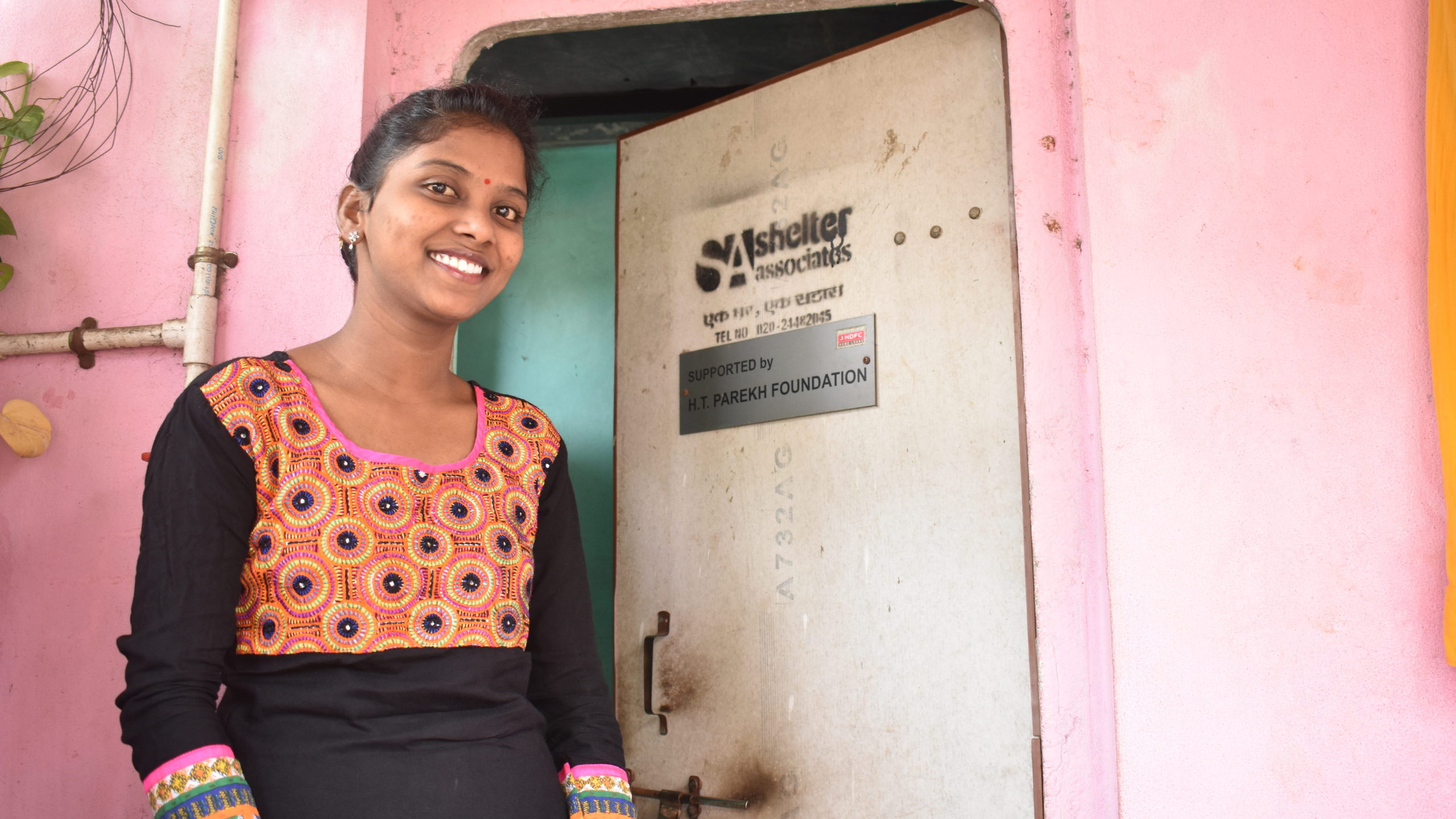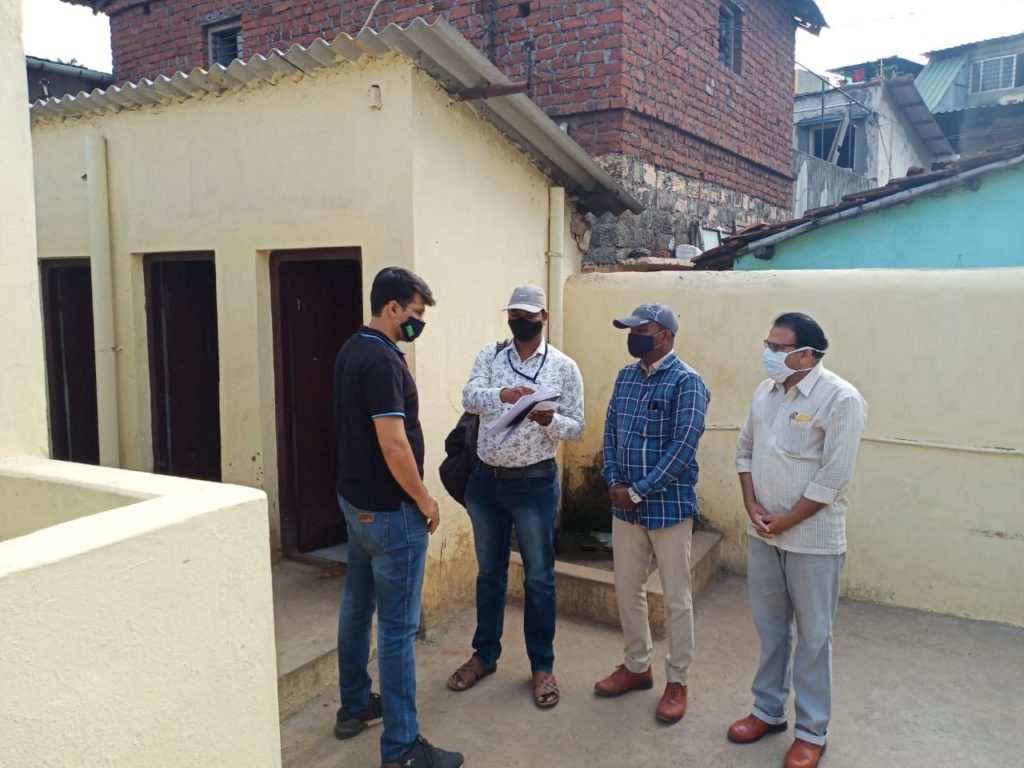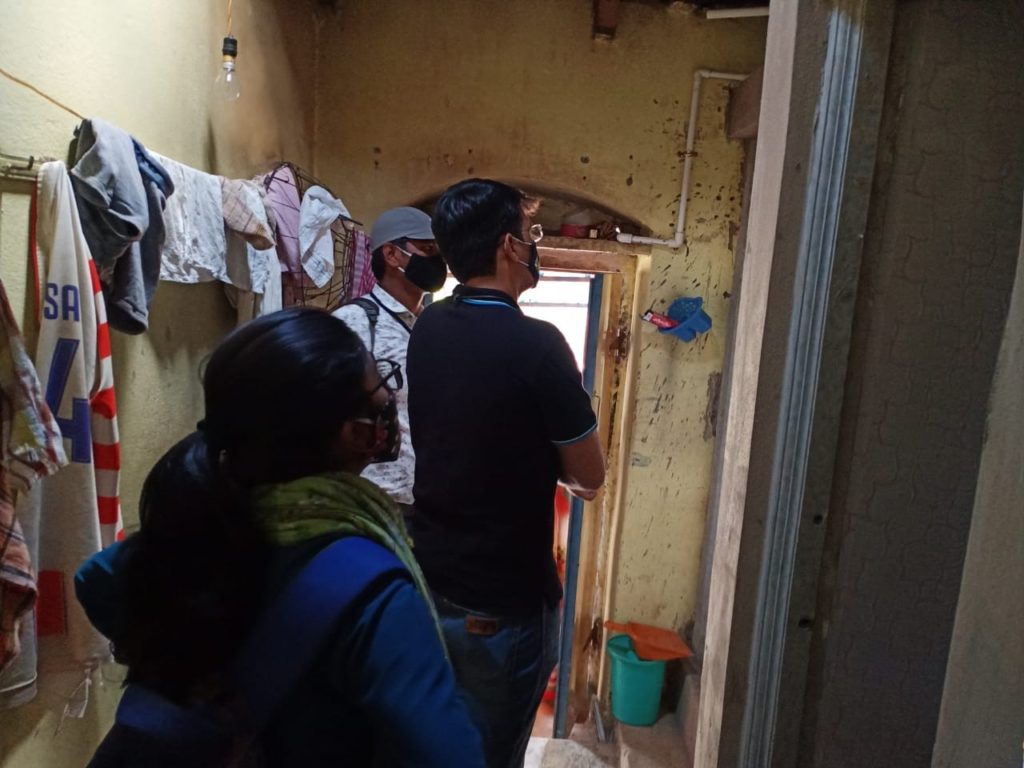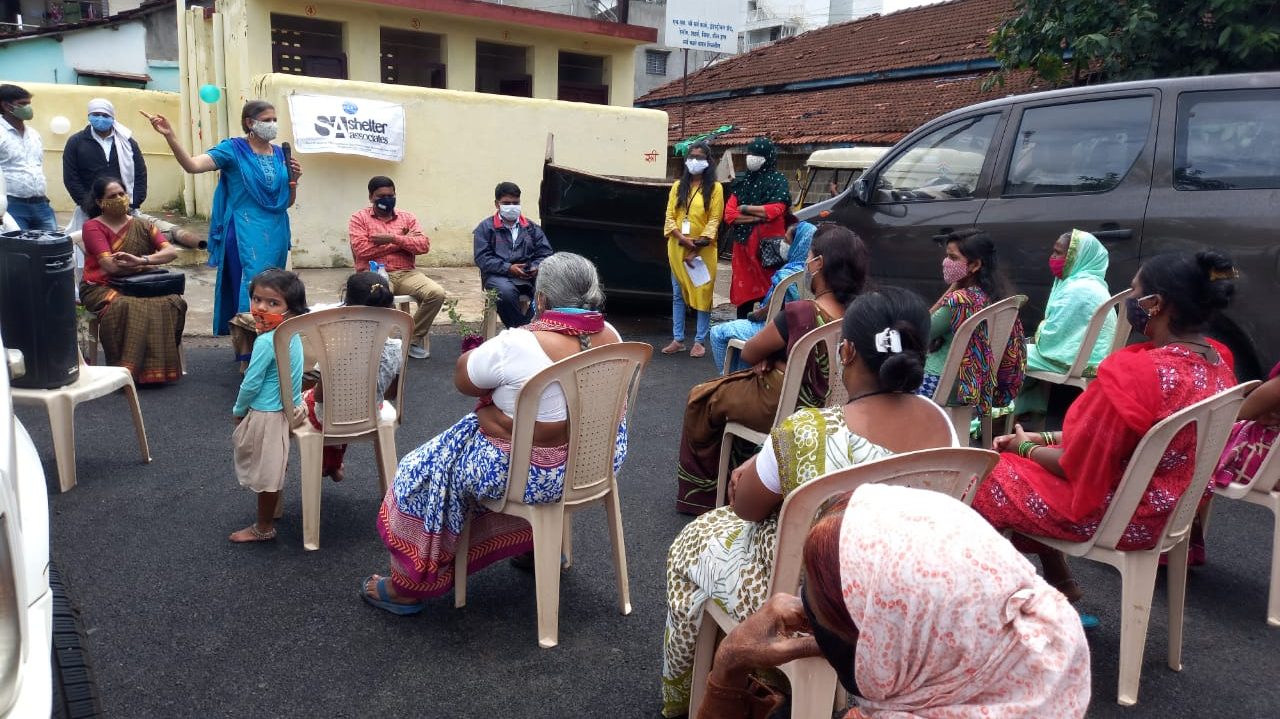Over the years, the slum population in India has soared along with its growing urban population. Regarded as an area unsuitable for human habitation with deplorable sanitation conditions, slums in India often fight over concerns of good health and hygiene.
Traditionally, slum dwellers had to depend on Community sanitation as home toilets were not even considered as a possibility by the urban local bodies. As per the Swachh Bharat Mission (SBM), it is estimated that families residing in slum settlements are most likely to use community sanitation facilities as a solution to open defecation due to space and financial constraints in constructing a home toilet. However, for the first time with the launch of SBM, there was immense thrust given to providing household toilets in slums wherever possible.
Shelter Associates, an NGO working in seven cities of Maharashtra, have been focusing on improving the sanitation situation in the informal settlements through facilitation of household toilets. With SA’s focused efforts on the facilitation of home toilets, many slums have become ODF and ODF+ in these cities. However, there is always a small percentage of families who can get left out due to various constraints and continue to be dependent on Community toilets.

Hence the moot question is how to create sustainable sanitation practices in the use of community toilets? This is especially important in the context of COVID19 with its concerns of community hygiene.
In settlements where SA has facilitated OHOT, the direct impact was the reduction of pressure on community toilets as more and more families opted for a home toilet. In some slums the Community toilet seat to family ratio is reduced between 1:2 to 1:4. Shelter Associates have therefore strategized on distributing the CTB toilet seats to individual families who do not own a home toilet. Every toilet seat within the CTB will be allocated to two or three resident families who would be responsible for its upkeep.
This will provide multiple benefits to the families; Firstly, it would eliminate waiting time. Secondly, since the seats would be used only by 2-3 families who would also undertake the cleanliness and upkeep of the toilets and keep it locked when not in use, they are likely to be well maintained. This will ease the maintenance burden on the ULB’s. This is a very well strategized solution that has been initiated in the city of Kolhapur, Maharashtra. Shelter Associates has collaborated with HT Parekh Foundation and Kolhapur Municipal Corporation for the Urban WASH project in 8 slum settlements of Kolhapur. These settlements house over 1200 families, out of which over 680 families use 19 Community Toilets. Shelter Associates have therefore initiated facilitation of household toilets wherever possible followed by advocacy with the ULB to repair/refurbish toilet seats where necessary, installation of hand wash stations and the CTB Seat Distribution in all these project slums as part of providing holistic sanitation solutions in the slums.


In one of the project slum settlements of Phulewadi in Kolhapur where the model is adopted, there are a total of 4 Community Toilet Blocks. After SA’s intervention in the slum through the household toilet facilitation, only 31 families comprising 132 individuals now use the CTB. With the reduced CTB seat to person ratio, it was decided to distribute the seats among families who were still dependent on the CTB. The Male and Female CTB toilet seats have been distributed to families of that settlement after a series of consultation with the community. Through this initiative, only the allocated families can use the toilet seat as they will be provided locks and keys for the same. They have also undertaken the responsibility of maintenance and upkeep of their allocated toilet.


This model illustrates a win-win situation for all the stakeholders since it allows equal distribution of sanitation facilities to the communities while also lowering the maintenance burden on the Government bodies. This model has the potential to be scaled across 24 informal settlements of Kolhapur where the toilet seat to family ratio has reduced drastically. Scaling the project further, wherever possible, individual household toilets can be facilitated to create additional scope for allocating CTB seats to households who are unable to get a home toilet constructed.
This is a step in the direction of safe community sanitation. In this model there is a move to shift responsibility of maintenance from the ULB to the community by converting the status of the CTB from public to semi private toilets.